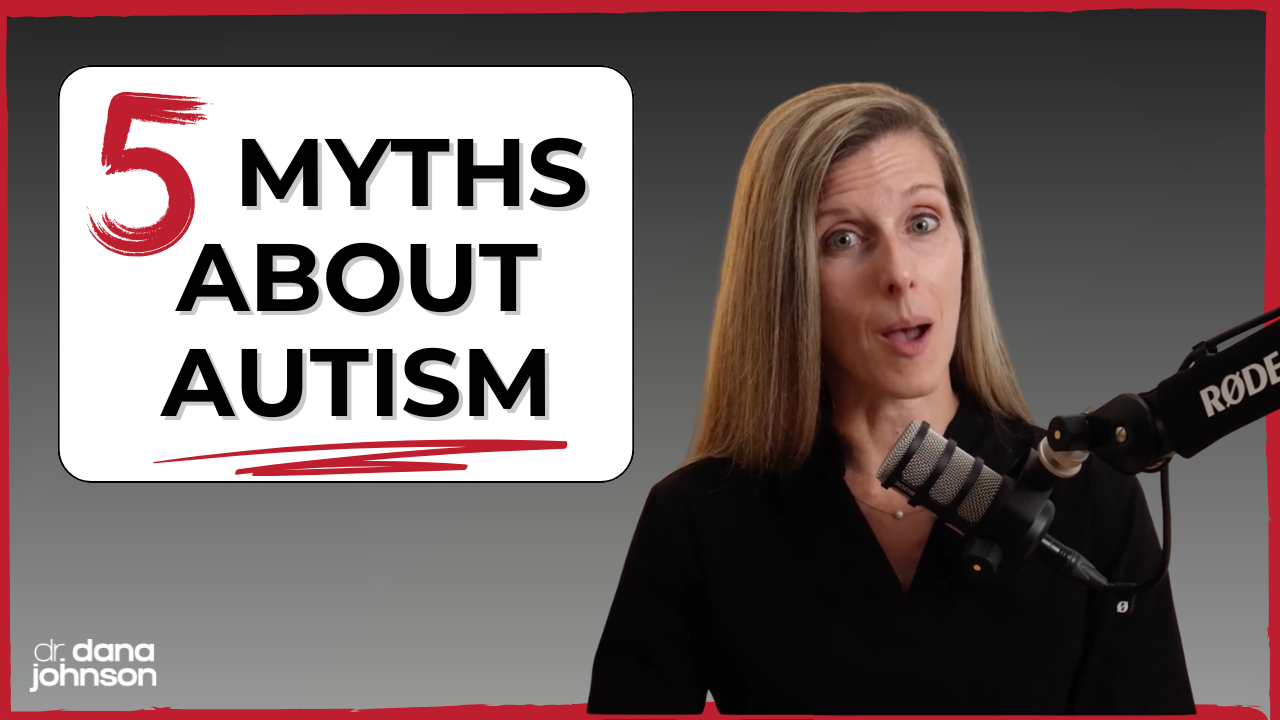The 5 Things We Get Wrong About Autism:
Have you ever been told that your autistic child whether they are 5 or 25 can’t really learn or understand the world around them? Or maybe you’ve heard doctors, teachers, or even therapists say, “That’s just autism”—as if every challenge is unchangeable.
Parents tell me all the time: “I feel like no one really gets my child. People look at their test scores, their behaviors, or the fact that they don’t speak, and they assume the worst.”
What if I told you that so much of what we’ve been told about autism is actually wrong? And believing those myths not only limits how we see our children—it limits what they can achieve.
Myth Number One: Autistic Individuals Experience the World the Same Way We Do.
If that were true, they could “just stop” stimming, “just follow directions,” or “just behave.” But the autistic sensory world is radically different.
Lights are brighter. Sounds are louder. Movement is harder. Vision works differently. Their perception of the world is not the same as ours.
These differences in perception is one reason why their bodies to do things differently than ours and this is why they can’t “just sit up, or just finish this task.” Motor planning, vision, and sensory perception work differently for them.
And then there’s the infamous “theory of mind” myth which is the idea that autistic people can’t understand others’ feelings. But countless autistic individuals have proven this wrong. They feel deeply. They understand. They want to connect.
The challenge is expressing it in a way neurotypicals recognize OR maybe it’s because we’ve failed to learn how to connect with them.
Myth Number Two: Is One That Parents Often Hear From Medical Professionals: “That’s JUST Autism.”
Your child hasn’t gone to the bathroom in a week? That’s just autism.
Your child is having seizures? That’s just autism.
They’re sick all the time, not sleeping, eating only three foods? Just autism.
Gut imbalance, poor sleep, mitochondrial issues, frequent sickness… when these pile up, they don’t just affect health—they affect motor planning, communication, and regulation. Ignoring them means missing the root of so many struggles.
Myth Number Three: Nonverbal Means They’ll Always Be Nonverbal.
Many believe that because an individual is nonverbal, that means they have an intellectual disability. But here’s the truth – Speech is one of the most complex motor skills we do, second only to moving our eyes. Because autism is a neuromotor disability, speech is going to be exceptionally difficult for some.
Nonverbal actually means without words. But as I’ve come to learn, those who use alternative methods of communication have many words, but they haven’t practiced the motor skills to be able to communicate reliably.
It’s not about intelligence—it’s about movement. If your child struggles with whole body apraxia or motor planning, talking might not be possible… but that doesn’t mean they can’t think, learn, or communicate.
Many nonspeaking individuals are proving the world wrong and have gone on to communicate fluently through typing, spelling, or other motor-based approaches. They are sharing their complex thoughts and emotions. Being nonverbal is not the same as being unintelligent—it’s simply one way the body struggles to cooperate with the brain.
So ask yourself: what if your child has been capable all along, but just hasn’t learned the intentional motor skills and been given the right tools?
Myth Number Four: Behavior is Always “Communication”
How many times have you been told your child is aggressive, defiant, noncompliant or oppositional? And then the professionals tell you that “behavior is communication”.
Let’s stop and think. Aggression requires intent. And if your child struggles with whole-body apraxia, is that punch, scream, or grab really aggression—or is it impulsive movement their body couldn’t stop? At Spellers Center Tampa, we focus on communication through Spelling so that all voices can be heard.
Myth Number Five: Autistic Individuals Are Intellectually Delayed And Can’t Learn Past Their Test Scores.
This is the label stamped on so many kids at the moment of diagnosis. The assumption comes from IQ or tests of comprehension, school performance, and therapy assessments. But none of those tests measure what’s really going on.
Autism is not a thinking or intellectual ability problem—it’s a moving problem. It’s not that kids don’t know—it’s that they can’t always show what they know.
Autism is rooted in the neuromotor system, the connection between the brain and body. When we understand it that way, it’s easier to presume competence. Presuming competence doesn’t mean assuming your child knows everything—it means refusing to limit them before giving them the chance to show what they’re capable of.
Please visit our YouTube channel for more educational videos: @DrDanaJohnson
Be sure to check out the Spellers Documentary to see how Spellers Method has impacted so many people’s lives.

